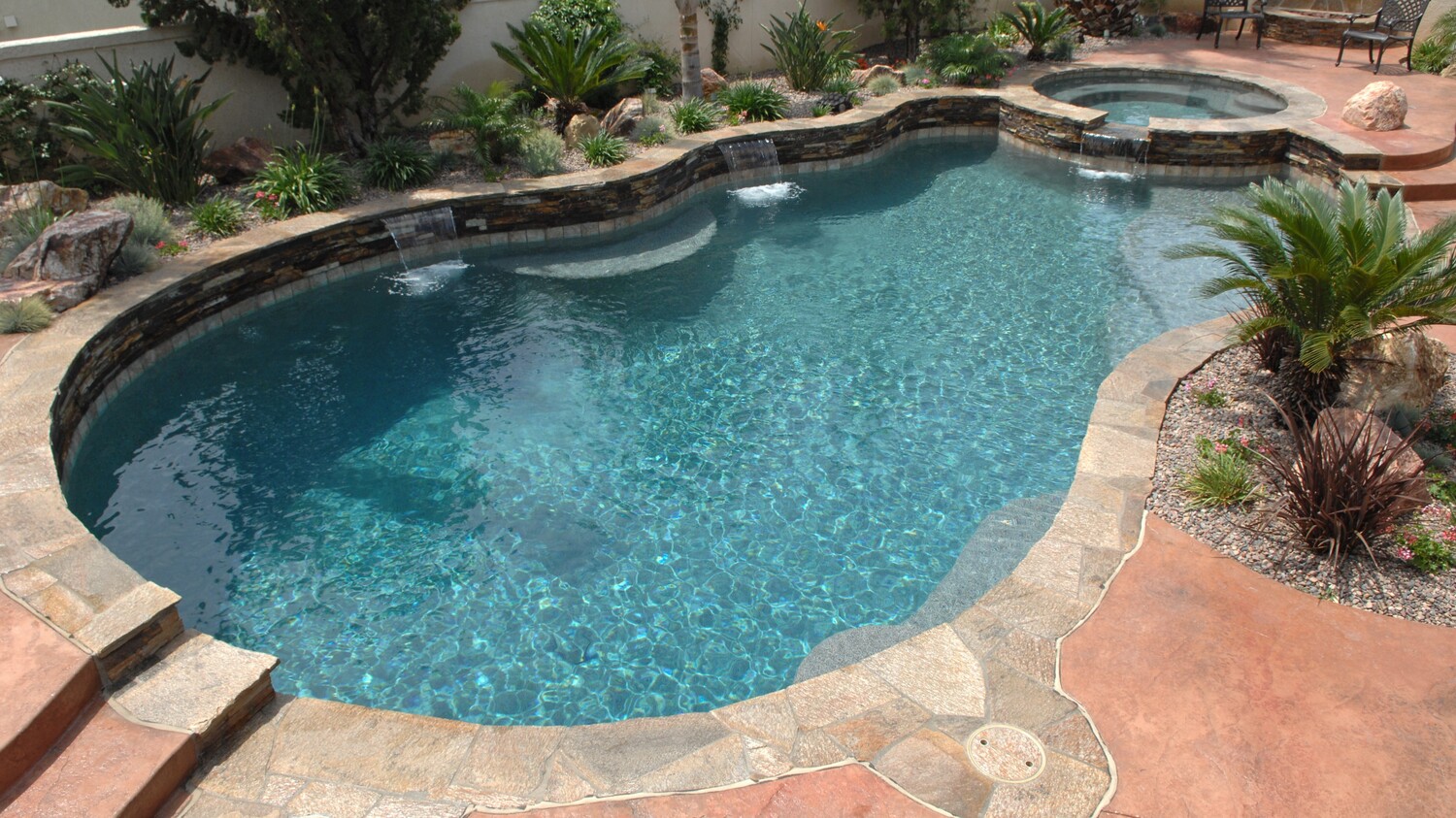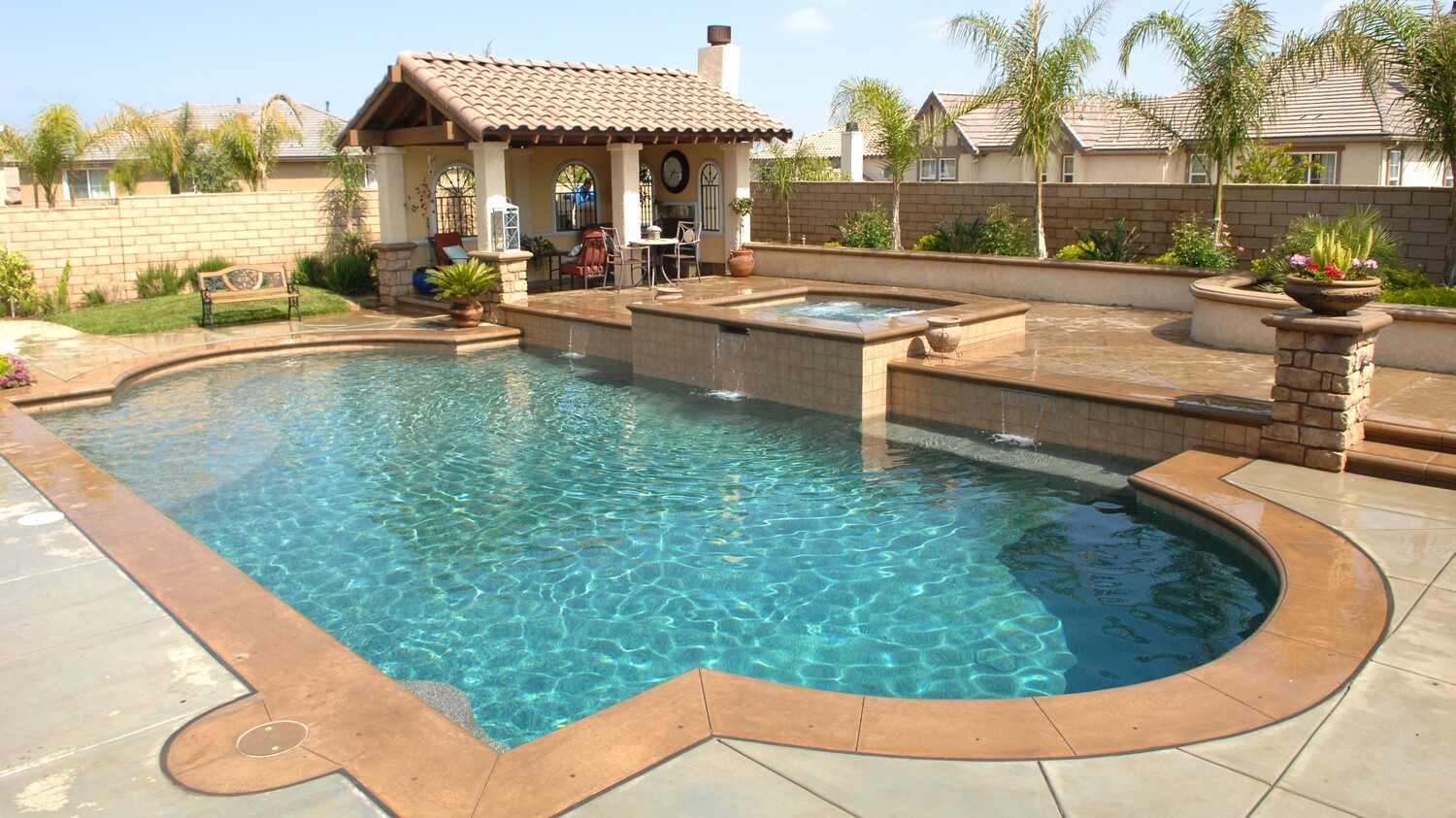TURNING OUTDOOR DREAMS INTO REALITY SINCE 2005




Infinite Pools’ many years of experience guides our approach in helping customers choose the right type of pool for their design and ultimate usage. Beyond the fundamental requirement for pool filtration, the method of sterilizing the pool is a critical decision. Approach to upkeep and the expected usage are important factors that go into the decision-making process when choosing your pool type. Our team of experts will work with you to understand these factors. From there, we help you make the right decision for your needs.
Placeholder to accommodate Elementor inability to allow full close according on load
This type of sanitation is most common and used 90% of the time with Infinite pools. It is very effective and user friendly. These pools use a salt chlorinator system, which converts salt into chlorine through a process called electrolysis. This eliminates the need for manual chlorine addition, resulting in a more gentle and natural swimming experience. Example: A homeowner might choose a saltwater pool if they prefer a milder swimming environment. They avoid the strong smell and potential skin and eye irritation associated with traditional chlorine pools.
Ozone is a powerful oxidizer that can be used to purify the water in swimming pools. It works by destroying bacteria, viruses, and other contaminants through the process of oxidation. Ozone pools can reduce the reliance on chlorine or other chemicals and provide cleaner and clearer pool water. Example: A homeowner that frequently has events with many different guests might install an ozone pool system to ensure the water is safe and free from harmful bacteria and viruses, especially for children and individuals with sensitive skin.
UV pools utilize ultraviolet light to kill bacteria, viruses, and algae in the water. The UV light disrupts the DNA of microorganisms, rendering them unable to reproduce. UV pools can be used in conjunction with a lower level of chlorine or other sanitizers, reducing the chemical load in the pool. Example: A homeowner might install a UV pool system to ensure the water is safe for frequent use, without exposing family and guests to high levels of chlorine.
These pools are an alternative to chlorine pools and use bromine as the primary sanitizer. Bromine is effective in killing bacteria and algae, even at higher temperatures, making it popular for hot tubs and spa pools. Example: A homeowner with a spa might opt for a bromine pool to provide a more relaxing and luxurious experience for their family.
Mineral pools use a combination of minerals, such as magnesium or copper, to sanitize the water. These minerals have natural antimicrobial properties and can help reduce the need for chlorine or other chemicals. Example: A homeowner might choose a mineral pool to offer a more environmentally friendly and holistic swimming experience for their family.
Contact us today with any questions you may have about pool types and important considerations for your pool.
TURNING OUTDOOR DREAMS INTO REALITY SINCE 2005
